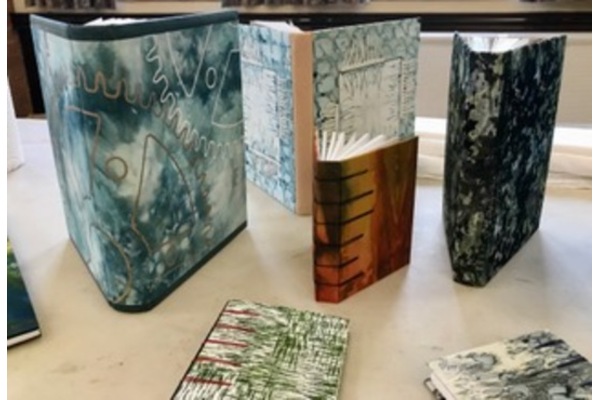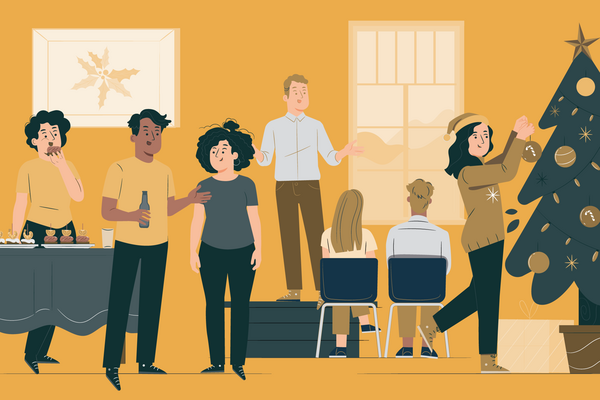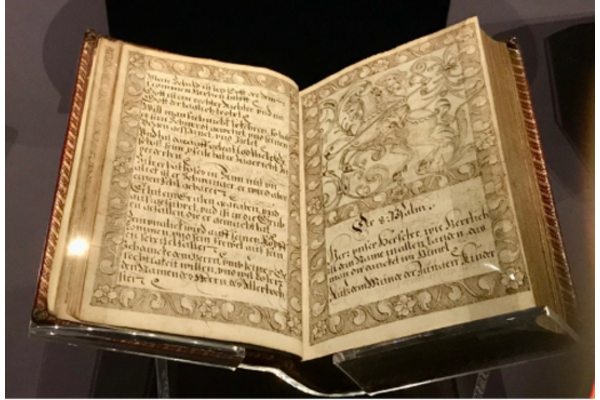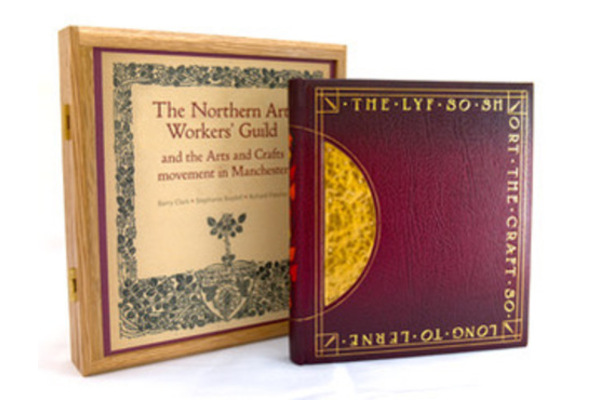NW2 Region: Programme of Events
January to December 2025
Numbers for workshops are restricted, please book your place with our Programme Organiser Sue Wood ([email protected] or 07974 709664) as soon as possible. Full details of the workshop will be sent to you 4 weeks in advance, when payment will be required.
Members taking part in a workshop will be charged £30.00 plus a fee for materials. In 2025 we are continuing with our no charge to attend as observers. As ever tea, coffee and biscuits provided from 10am, for a prompt start at 10.30, at the Community Centre, Chester Road, Kelsall, CW6 0SB. Please arrive in good time to get set up ready for the start time; we finish about 16.30.
There is a standard tools list for workshops. Additional items are listed with each workshop outline. The standard tools list to bring to every workshop is:
cutting mat, craft knife, scalpel and sharp blades, cobblers knife, large and small metal rulers, set square, pointed bone/teflon folders, sharp pencil or propelling pencil, eraser, spring dividers, tweezers, small and large scissors, bookbinders’ needle, bookbinders’ fine-pointed awl/pricker, small and large glue brushes, PVA, waste paper, apron.
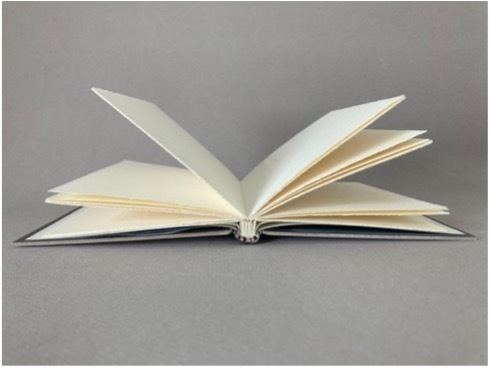
Saturday 25 January - Kathy Abbott: Stub Binding
* * * * * This is an on-line workshop * * * * *
In bookbinding, a stub is a narrow, folded piece of paper to which book sections can be sewn, rather than sewing the sections directly to one another. While not necessary or desirable for all books, they are an excellent solution for a variety of problems. Stub bindings are the perfect solution to binding books which are printed in the wrong grain direction, books with overly thick sections, or books with illustrations that cross the gutter. The stubs allow each section to open freely and perfectly flat, also ensuring that no adhesive touches the actual book-block. Once you learn how to prepare and make stubs, you can choose to bind your book in any way you please: fine binding, case binding, artists books; the choice is yours!
This workshop will focus on the process of planning, making, and the sewing of standard stubs. You will complete the course with an understanding of when and why to use this technique and a sewn, unbound model for future reference. We will not bind (cover) the text-block as part of this workshop.
NB: the workshop will be recorded and available only to those who have paid for the following four weeks.
Workshop fee £30, plus £13 for materials including postage.
Standard tools list plus: brass block or ‘L’ square (engineers square), pack of size 5–9 darning needles, pricking cradle/punching cradle, a small weight (around 2–4lb), small pressing board, masking tape.
Saturday 8 February - Regional AGM, the launch of our 2025 NW2 Binding Project, plus . . .
Annual General Meeting, followed by an illustrated review of our 50th anniversary year. We will also feature an impressive display of items created at the many activities during the year. Plus the launch of our 2025 NW2 Binding Project; there will be an opportunity to buy the set book ‘in sheets’. Plus an AGM raffle with prizes, and surplus kit and materials from other members available.
No booking, no charge, just turn up on the day.
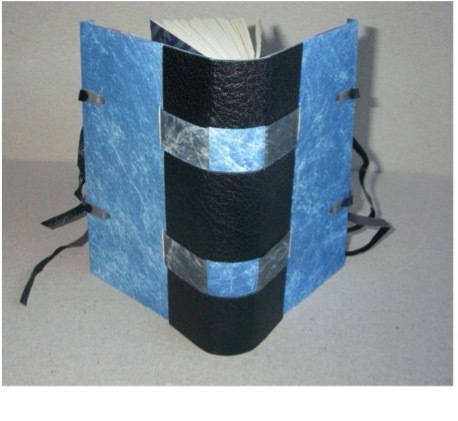
Saturday 8 March: Tanja Bolenz: The Three-Piece Slot Book
A binding that entices the senses with its tactileness and promises many design possibilities. Combining leather and tyvek, we will create a strong yet very flexible cover to be slotted together into a book block sewn on tyvek tapes. Leather closure straps and stand-up edges give a nice finish to the binding. A structure popular with artists, it is suitable for both beginners and the more experienced binder.
Workshop fee £30, plus £10 for materials (includes the leather & tyvek).
Standard tools list plus: a nipping press, flower press, and a heavy weight/brick.
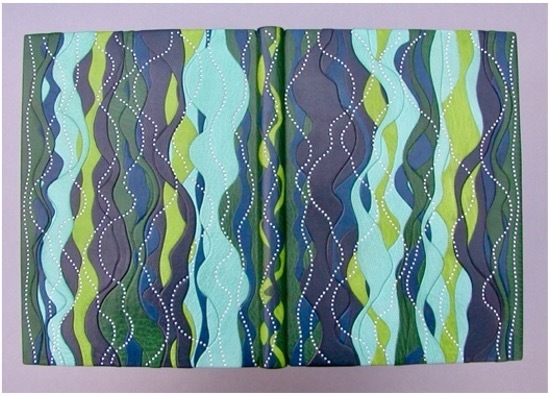
Saturday 12 April - Dominic Riley: Tudor style leather covering
This alternative artistic approach to covering in leather was invented by Paul Delrue - Dominic’s first teacher, and this workshop is his tribute to his Master. Put simply, it is made by covering the boards with a series of overlapping strips of goatskin, which create raised areas on the boards similar to those achieved by the traditional built-up board technique, but without the need to build up the board underneath, and without the need for scarf joints where two pieces of leather meet. The feel of the leather, particularly where it overlaps, is very attractive. We will all cover a small board in the Tudor style, and Dominic will demonstrate how to add secondary strips to create an even more complex and interesting effect.
Workshop fee £30, plus £15 for materials.
Standard tools list plus: Brockman or Schärffix paring machine (if you have one), with blades; paring knife and strop; small paring stone or tile (if you have one); 2 small bowls for paste and PVA; paste brush; 2 rags; sponge; hair drier and extension cord; Japanese water brush pen or small artists brush; jar for water.
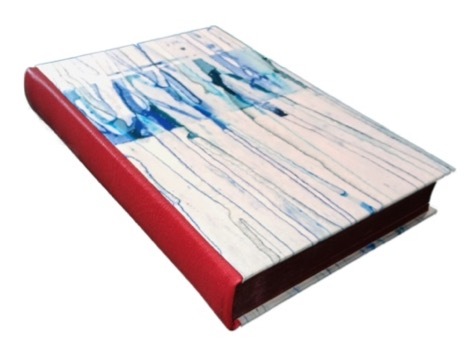
Saturday & Sunday 10 & 11 May - Glenn Malkin: Making an Off-Boards (or Three-Part) Binding.
An off-boards binding is a structure that is frequently used in design bindings and allows the boards to be worked on and decorated before being secured to the book. In this two-day workshop we shall introduce the refinements and tips used to make this structure suitable for competition-level books. We will start by pulling an old Folio Society book (supplied) to work on. After adding new endpapers, we will hand-sew coloured endbands (using a simplified method) and line the spine, adding a three-quarter hollow. We will prepare and secure inner boards and add a leather spine, forming neat end caps. We will then create our two outer boards covering with cloth or decorative paper and secure to the book. Finally, we will fill-in the inside covers and secure the paste-downs.
Workshop fee £60, plus £35 for materials which includes a suitable Folio Society book and pre-thinned leather. Decorative materials for the board covering will be provided, but if you wish to bring your own decorative cloth or paper for the boards, you are welcome to do so.
Standard tools list plus: finishing press, medium hammer, paste, extra needle (ie 2) for endbanding.
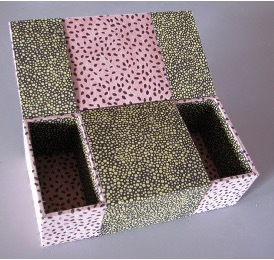
Saturday 14 June - Lori Sauer: The Magic Box
Based on the principle of a Jacob’s ladder, with a lid that opens in two directions, this is a fun and intriguing box. Seemingly simple, it stretches the brain and you’ll want to make more and more. Join in and learn the secret.
Workshop fee £30, plus £5 for materials (materials for covering will be provided, but if you wish do bring your own decorative paper - book weight, two patterns, and the equivalent of A2 - A3 in size).
Standard tools list plus: masking tape.
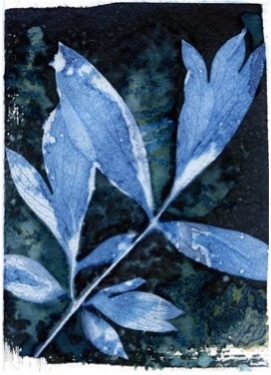
Saturday 12 July: Lynne Connolly: Cyanotypes
Cyanotype was originally used as a process for blueprints, using sunlight and paper, dating back to the 1800s. We will make a range of images providing material for book content or covers, or simply to frame as prints. We will explore the chemicals and materials best suited for this process, including an overview of how to continue the process at home. We will first prepare papers and explore simple flat objects to expose, moving on to examples of wet process and simple toning using tea and coffee to alter the colours of the image.
Workshop fee £30, plus £15 for materials.
Standard tools not needed but: I will supply both A5 and A4 sized papers to work with, you will need to bring some old pieces of glass – cheap picture frames are perfect as they have a back the right size. Bring 2 or 3 A4 or A3 sized frames. Note that the chemicals are safe to use but bring a few pairs of nitrile gloves to protect your hands and also to prevent staining. Things to bring: Nitrile gloves, An old apron and hand towel/paper towels (wear old cloths and comfy shoes that might get splashed with chemicals…), A4 – A3 glass (not UV safe! - we need the UV light) x2-3 pieces, A piece of heavy weight board backing the same size as the glass to support your work for exposure, A J cloth to wipe glass clean, Pegs or clamps to hold paper securely within glass frame, A small spray bottle for water, Scissors or shape cutters if you choose paper-based forms to work with, Cling film , Hair dryer, 2 plastic trays ie like a takeaway food container (but do not reuse for food, Black permanent marker, fine to medium ie approx. 0.5 – 0.8 tip.
Plus suitable objects/materials (objects need to sit flatly under the glass): Leaves, ferns, flower petals etc If dried you will get the outline shape, if fresh you also get some interesting chemicals reactions happening; Objects that allow for some transparency will give different shades, a solid object will give an outline as it blocks the light; Fabric - lace, light cottons etc; Papers of different density - you can create collage effects using just paper and or fabrics; Threads, cord, ribbon, buttons, coins and so forth.

Wednesday 6 August - Visit to North East Wales Archives & Gladstone Library
NEWA holds wide-ranging and varied collections of manuscript and print material representing work and leisure of North Wales society. Keeping this accessible and available to be directly consulted is the work of the archive conservator. Conservator Mark Allen’s introductory talk will highlight the specific issues and problems faced when working on the conservation of these heritage materials. It will touch on the history of materials development to provide some context. Recent conservation treatments carried out at the studio in Hawarden will be used as examples to explain methods and current thinking. We will move on for lunch and a tour of the nearby Gladstone Library - the UK's finest residential library. Designed by the prolific Chester-based architect John Douglas in the Gothic Revival style in 1902 it is now Grade 1 listed.
There is no charge for this event, but members pay for their own lunch at the Gladstone Library.
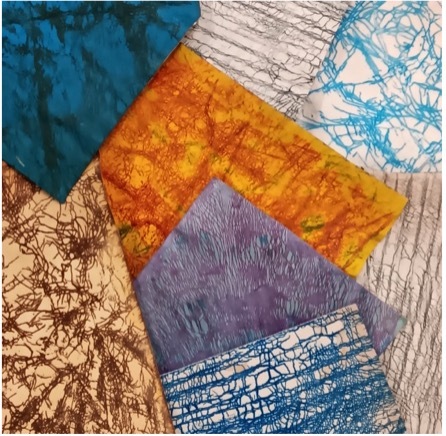
Saturday 13 September: Our Autumn Gathering and NW2 Binding Project display
A day to come together for demos and illustrated talks, plus a display of all members’ bindings for our NW2 2025 Binding Project. Glenn Malkin will demonstrate the craquelle (opposite) and Dominic Riley the tree calf decorative processes, and Barry Clark will give an illustrated talk on publishers’ Arts and Crafts book covers. What else would you like on this day of bookbinding fellowship?
The usual Kelsall fee applies: £30.
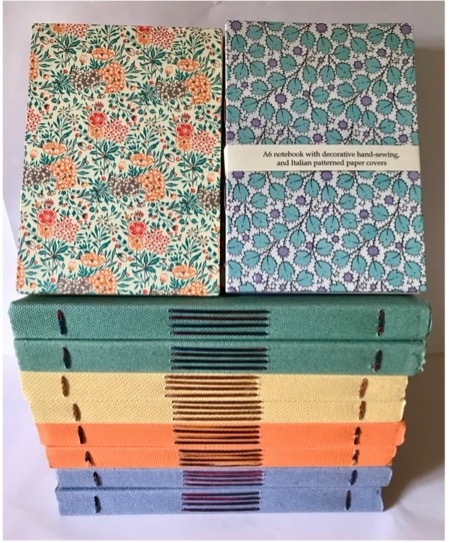
Saturday 11 October - Barry Clark: Creating Multiples
Barry makes a range of affordable notebooks / sketchbooks / journals for sale at Christmas Craft Fairs. In this workshop he will demonstrate and you will experience his approach to creating multiples ensuring an economical use of materials, time and effort. We will all make his two most popular books - the A5 Eco sketchbook with Zaansch Bord covers, recycled cartridge paper, bound with the long and link stitch; and an A6 hardback journal with decorative exposed sewing, recycled Five Seasons paper, and Italian pattern paper- and cloth-covered boards. Ideal early Christmas presents!
Workshop fee £30, plus £7 for materials.
Standard tools list plus: Japanese screw punch (if you have one; spares will be available), extra needle (ie 2), 2 A5 pressing boards, small weight.
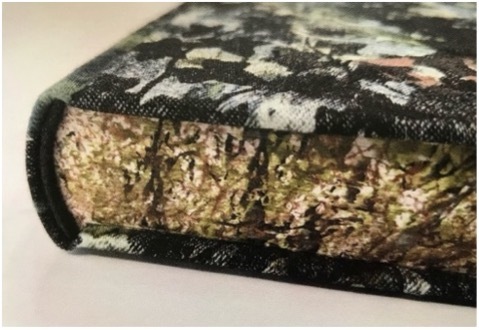
Saturday 8 November: Ruth Brown: Creating and Using Your Own Book Cloth
A workshop with a mixture of demonstrations and practical sessions. Ruth will use her award-winning binding of The Secret Garden as a design source, and her background working with textiles, to explain how she came up with the concept for the cover and then interpreted it on to fabric. We will experiment with layering a variety of mark making techniques with everyday tools and equipment to create visual texture and patterns on fabric. Ruth will demonstrate some simple screen printing techniques and how to back fabric to make book cloth. Finally, we will use at least two different methods of making neat corners on to board. Ruth stresses: no particular artistic skills are needed to fully participate in this workshop!
Workshop fee £30, plus £5 for materials.
Standard tools list plus: old debit/credit/store card, a few pieces of kitchen roll, 4 small plastic pots for mixing paints, a twig, piece of cling film, mesh bag (the sort of thing that fruit comes in), a flat piece of plastic/tile, and a small roller.

LATE EXTRA!!! Saturday 29 November - Kathy Abbott: Stub Binding
* * * * * This is an on-line workshop * * * * *
Due to very high demand Kathy has agreed to repeat her January on-line workshop for us.
In bookbinding, a stub is a narrow, folded piece of paper to which book sections can be sewn, rather than sewing the sections directly to one another. While not necessary or desirable for all books, they are an excellent solution for a variety of problems. Stub bindings are the perfect solution to binding books which are printed in the wrong grain direction, books with overly thick sections, or books with illustrations that cross the gutter. The stubs allow each section to open freely and perfectly flat, also ensuring that no adhesive touches the actual book-block. Once you learn how to prepare and make stubs, you can choose to bind your book in any way you please: fine binding, case binding, artists books; the choice is yours! This workshop will focus on the process of planning, making, and the sewing of standard stubs. You will complete the course with an understanding of when and why to use this technique and a sewn, unbound model for future reference. We will not bind (cover) the text-block as part of this workshop. NB: the workshop will be recorded and available only to those who have paid for the following four weeks. Workshop fee £30, plus £13 for materials including postage. Standard tools list plus: brass block or ‘L’ square (engineers square), pack of size 5–9 darning needles, pricking cradle/punching cradle, a small weight (around 2–4lb), small pressing board, masking tape.
Saturday 6 December: Christmas lunch / social
Join us for a festive gathering at Kelsall Community Centre. It will be a day of activities: small making projects, possibly a demo, a fun quiz, a raffle with stunning (?!?) prizes, and a buffet lunch provided by outside caterers.
The Portico Library workshops are run in partnership with the Society of Bookbinders, North West and North Wales Region.
All workshops take place at the Portico library in central Manchester. They run from 10.00-4.00, with tea/coffee on arrival for a prompt start at 10.15am. All materials and tools will be provided. The £80 fee includes the cost of materials, tea/coffee on arrival and a light lunch. Workshops are limited to 12 participants so early booking is advised.
Please go to the Portico website for booking details: https://www.theportico.org.uk or email: [email protected]
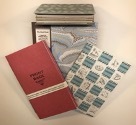
Wednesday 12 February: An Introduction to Bookbinding
[for total beginners, and others not too confident]
In this one-day workshop we will create three finished books: all using the simple but versatile pamphlet stitch. We will make a sewn softback pamphlet with a decorative dustwrapper, a single section hardback notebook with a cloth spine, and a multi-section concertina book. These three projects will introduce you to the essentials of all bookbinding: grain direction, folding and cutting paper, creating book sections, and sewing. And you will have three hand-made books to take home!
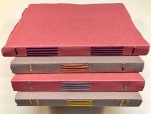
Wednesday 9 April: Creating an Eco Sketchbook
This A5 sketchbook could hardly be greener. The covers are made from Zaansch Bord, a hand-made thick paper made from cotton waste in a wind-driven paper mill in Holland. The pages will be recycled cartridge paper. The book requires no glue as the folded paper sections are sewn direct to the cover with a waxed linen thread, using the long and link stitch - holes are punched into the cover and sewing through the holes creates a binding that is both highly decorative and functional.

Wednesday 11 June: The A5 Travel Journal
Single sheets have been bound together with adhesive since Victorian times through to the modern paperback . . . and they don’t have to fall apart! It’s even called ‘perfect binding’ in the trade. In this one-day workshop you will make a perfect bound book, with coloured endpapers, strengthened linen cloth covers, and a pocket inside the rear cover for tickets and ephemera, all held together with an elasticated closure. A great journal, home or away.
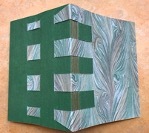
Wednesday 17 September: A crossed structure notebook
We will make an A6 crossed structure notebook - a non-adhesive binding developed by Carmencho Arregui. The book block is sewn directly around the rear cover’s straps which could be card, leather or some other material. We will use reinforced hand-marbled paper for the front cover, with a supported book cloth for the rear. After sewing, the straps of the two covers weave and interlock. The rear cover extends, and folds over the foredge thus protecting the book.
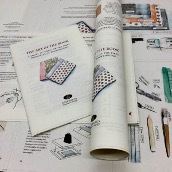
Wednesday 12 November: Making a single section hardback book
We will make a proper hardback book with a difference! Supplied in the form of a flat sheet, once bound its sixteen printed pages are transformed into your own bookbinding instruction manual for future use. Developed in 2020 by London-based bookbinding suppliers Shepherds Sangorski & Sutcliffe, making the book is itself a tutorial on the essential principles of creating hardback notebooks. Another workshop for total beginners and others not too confident.

